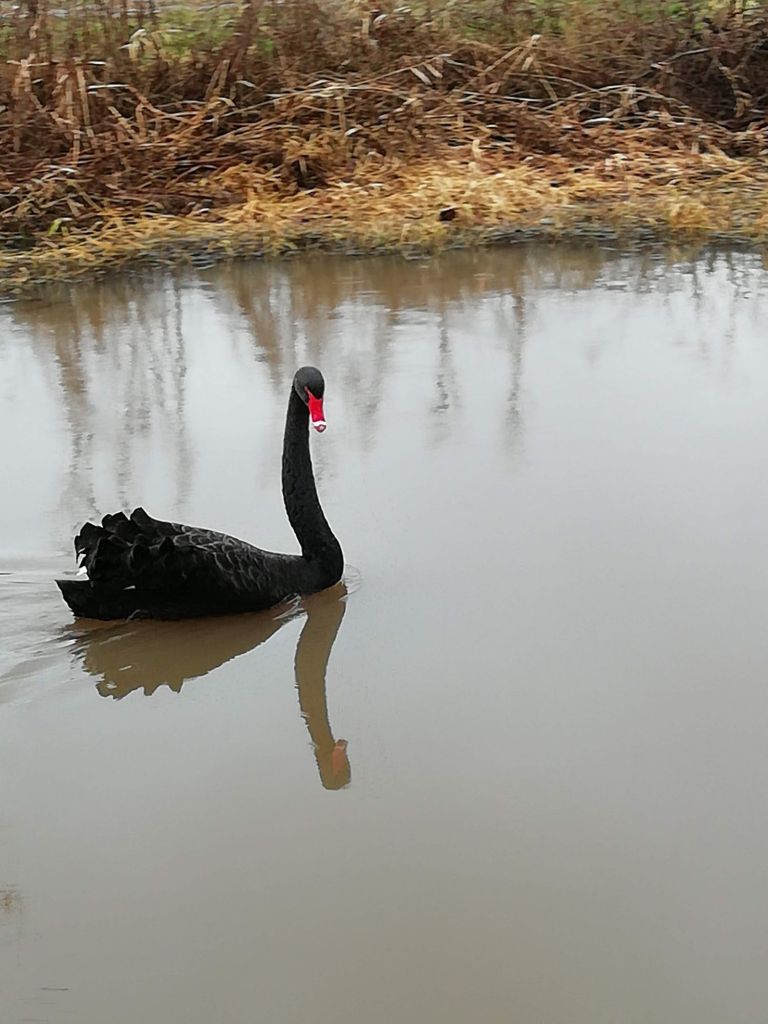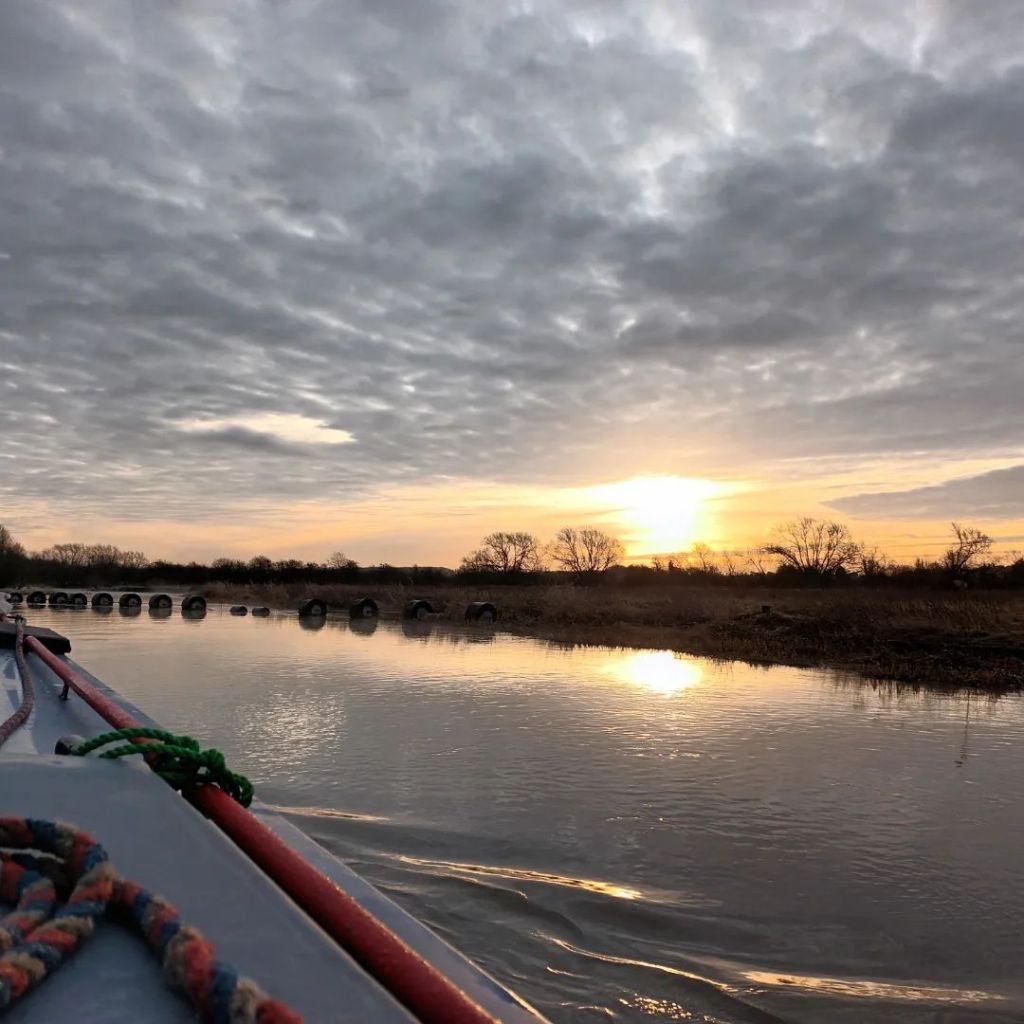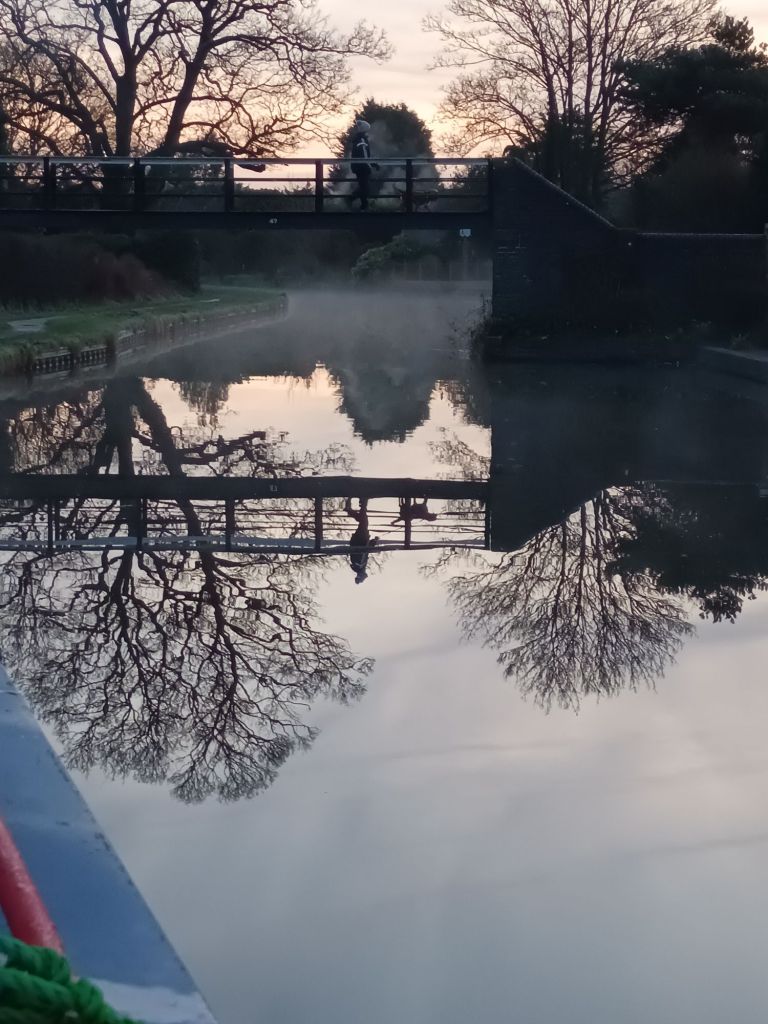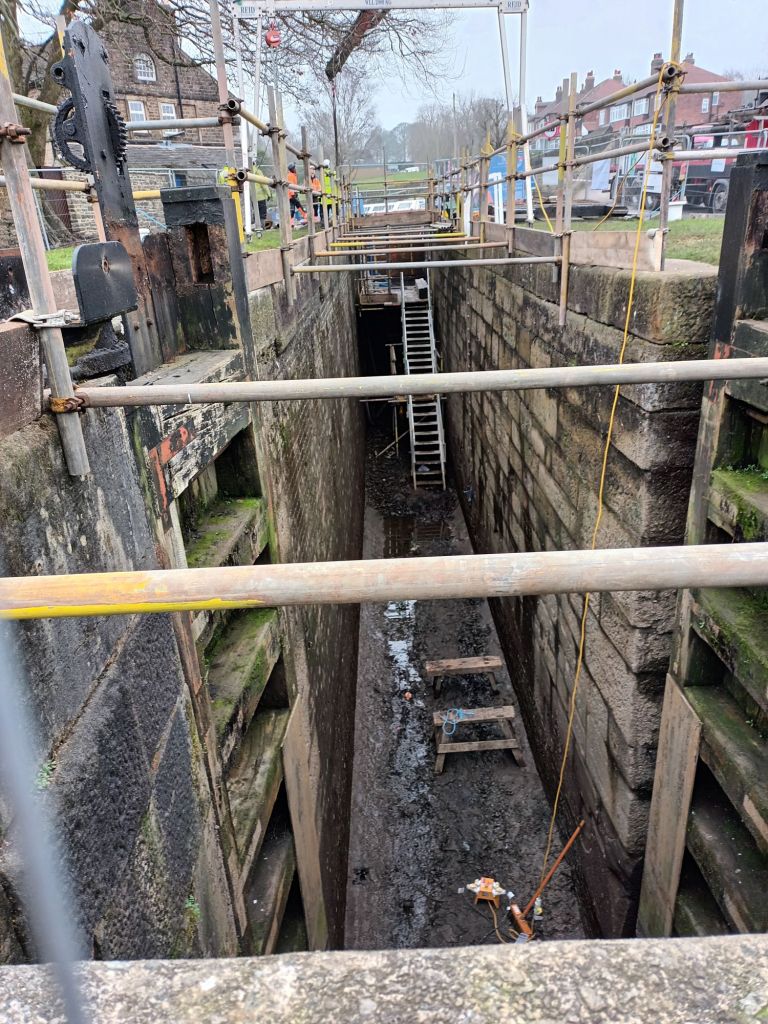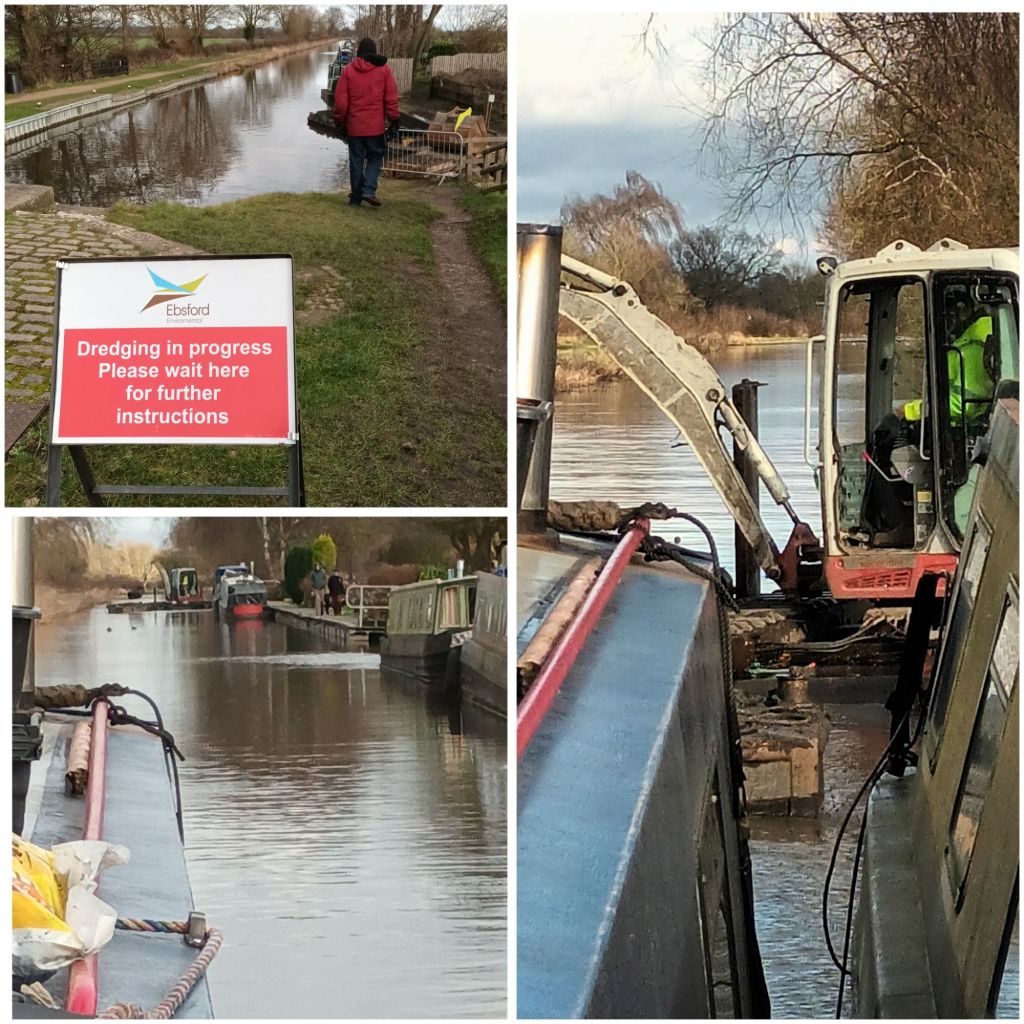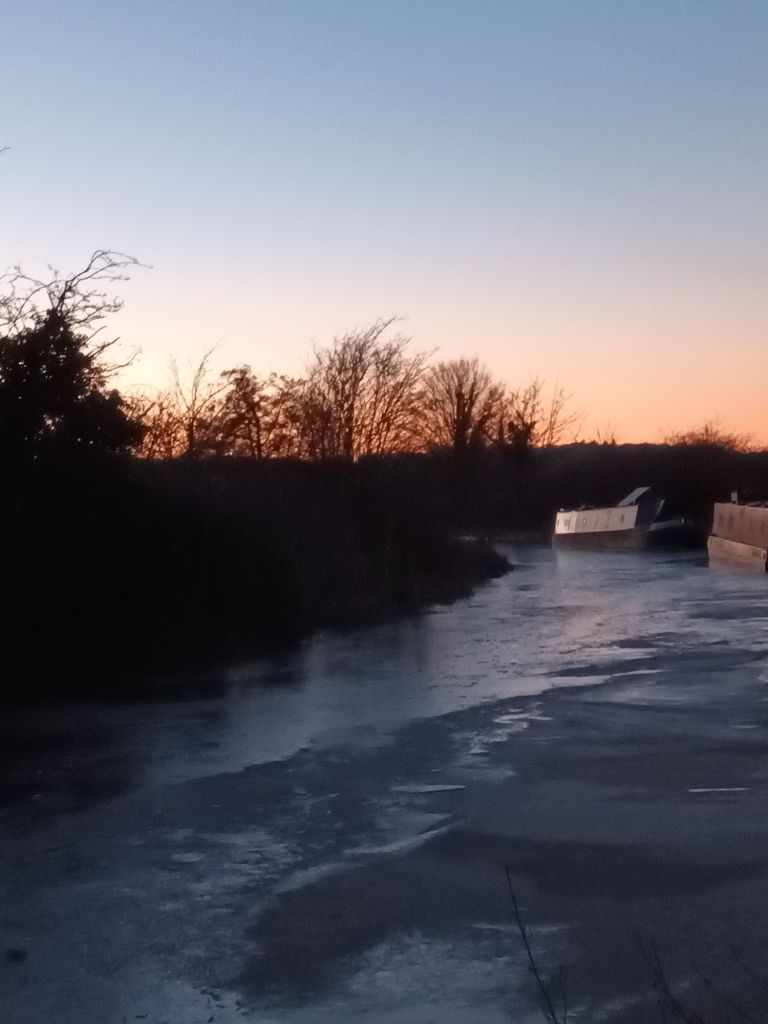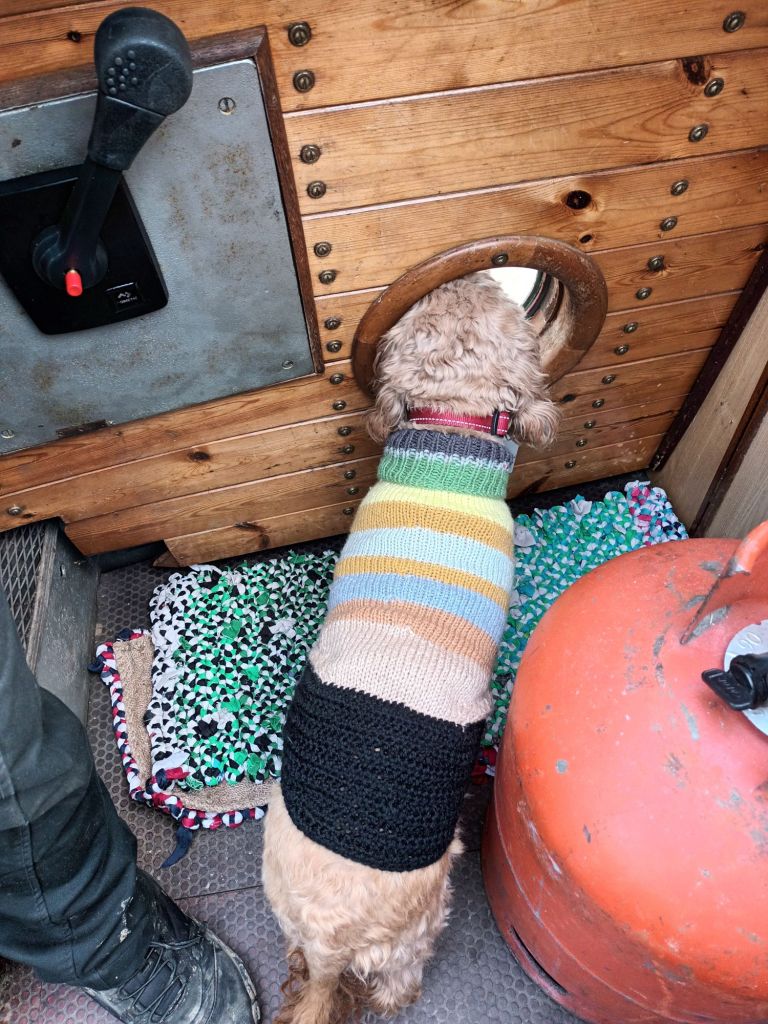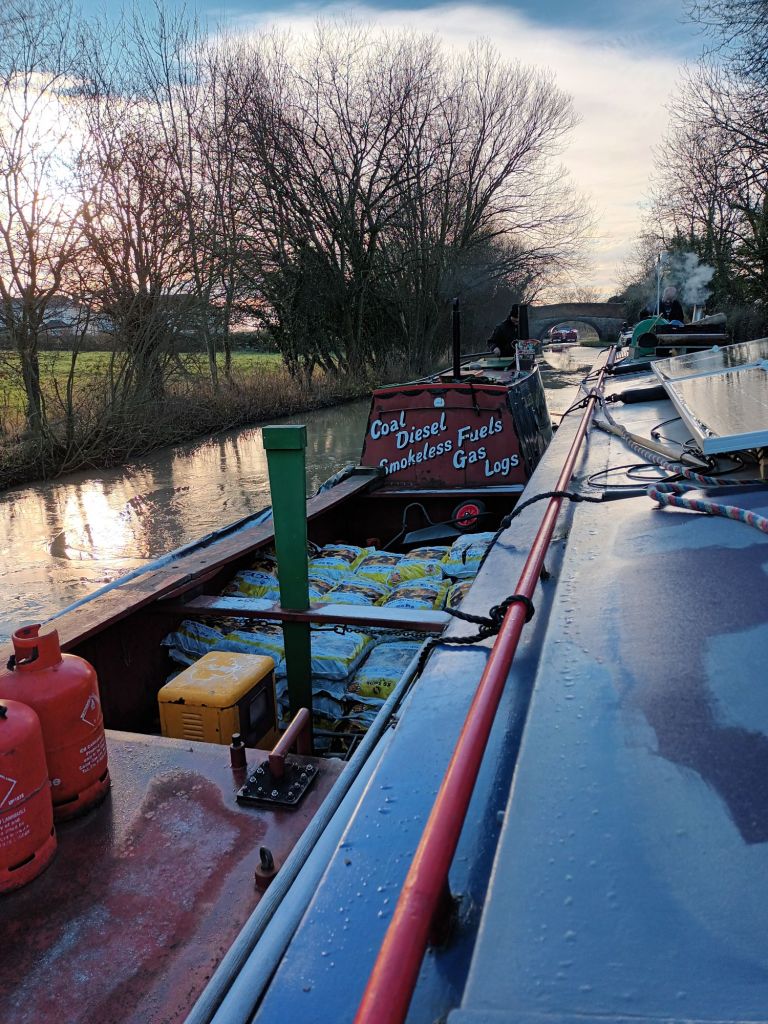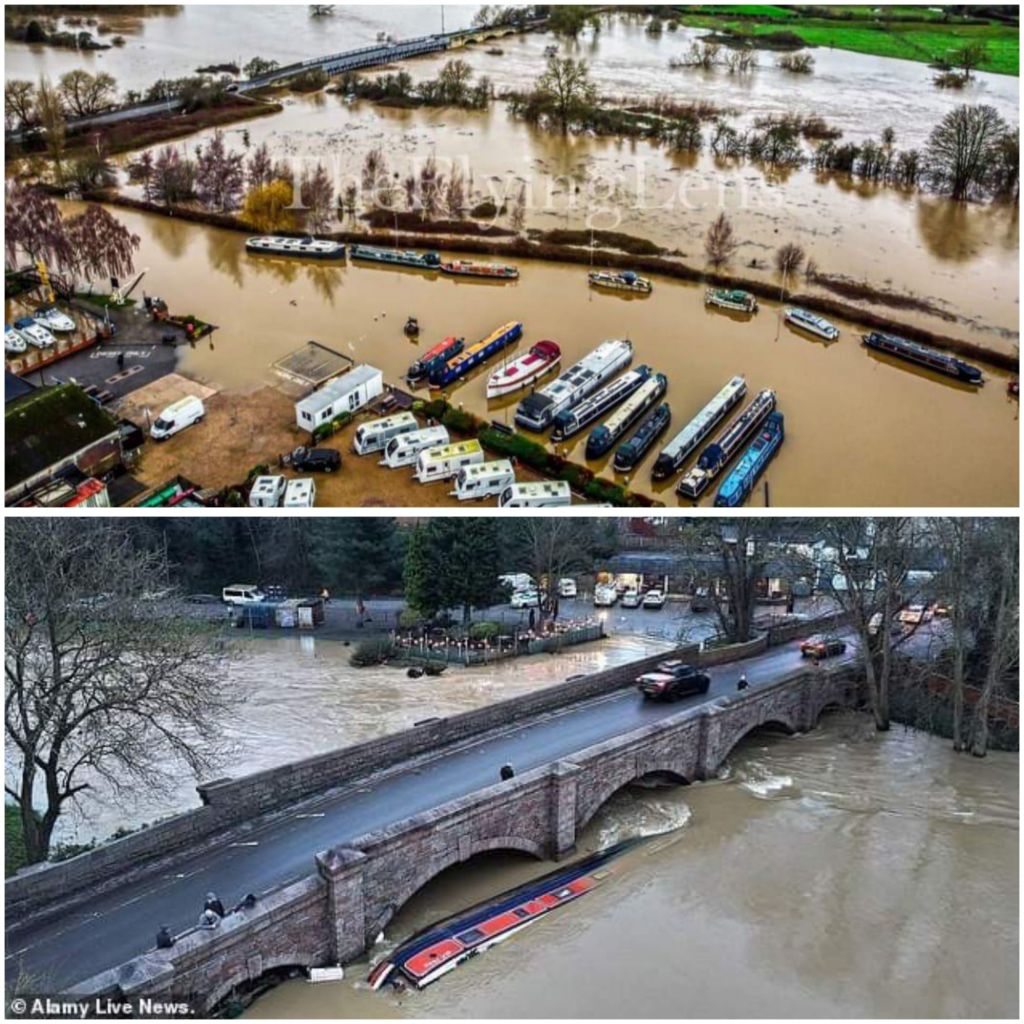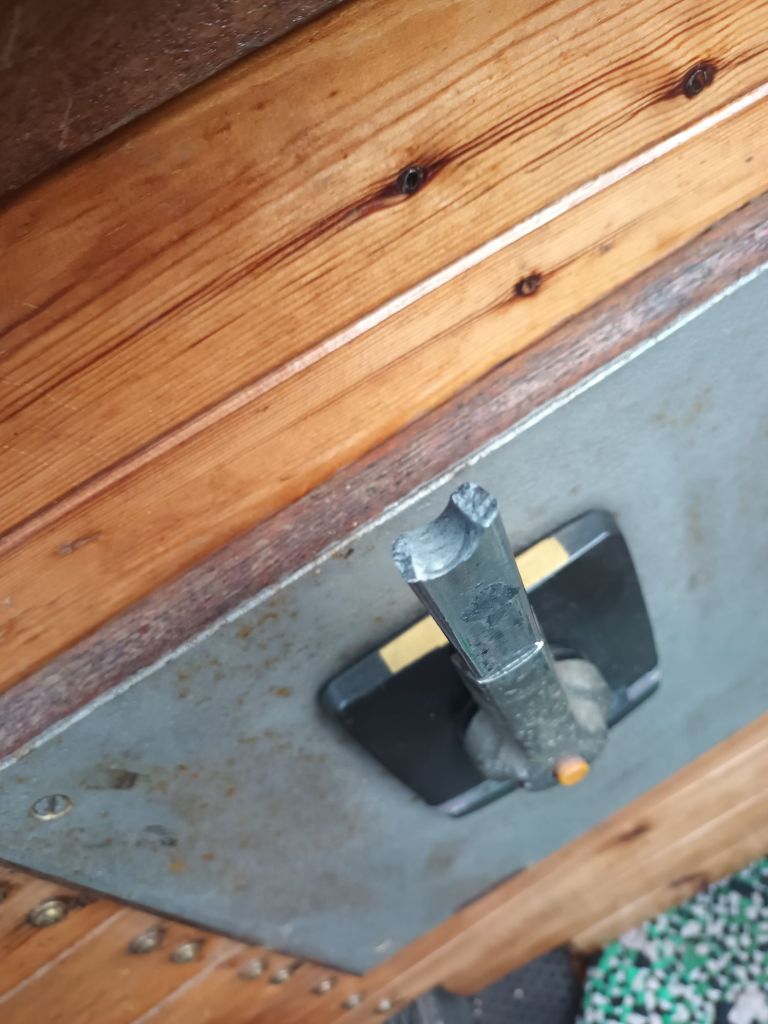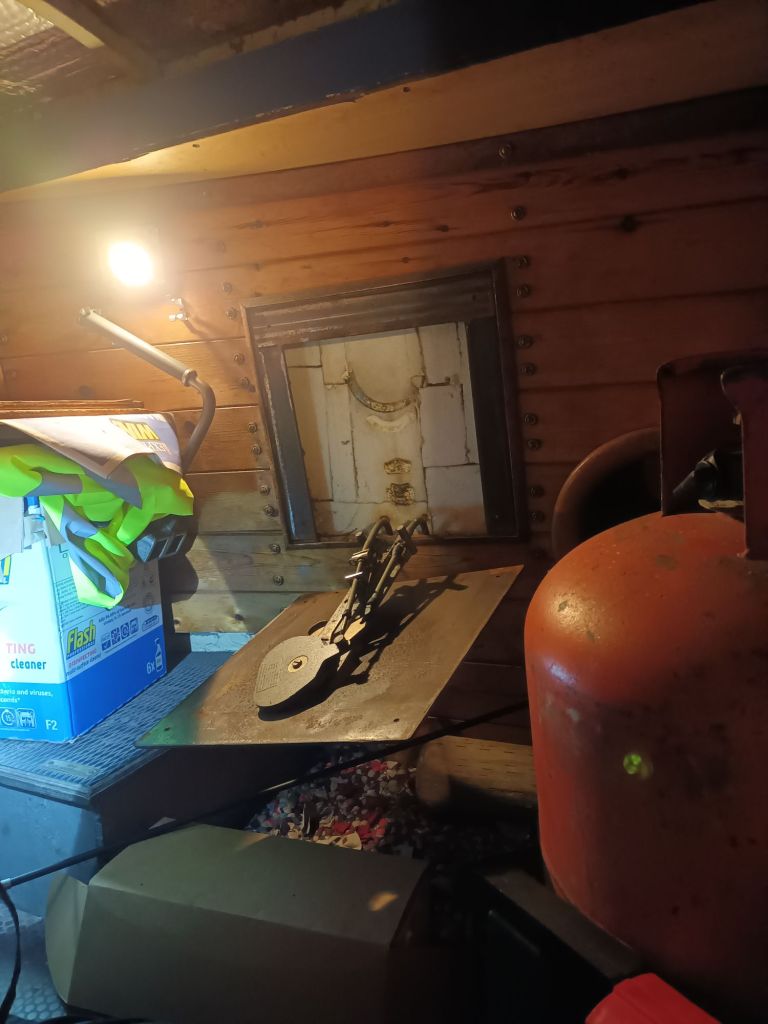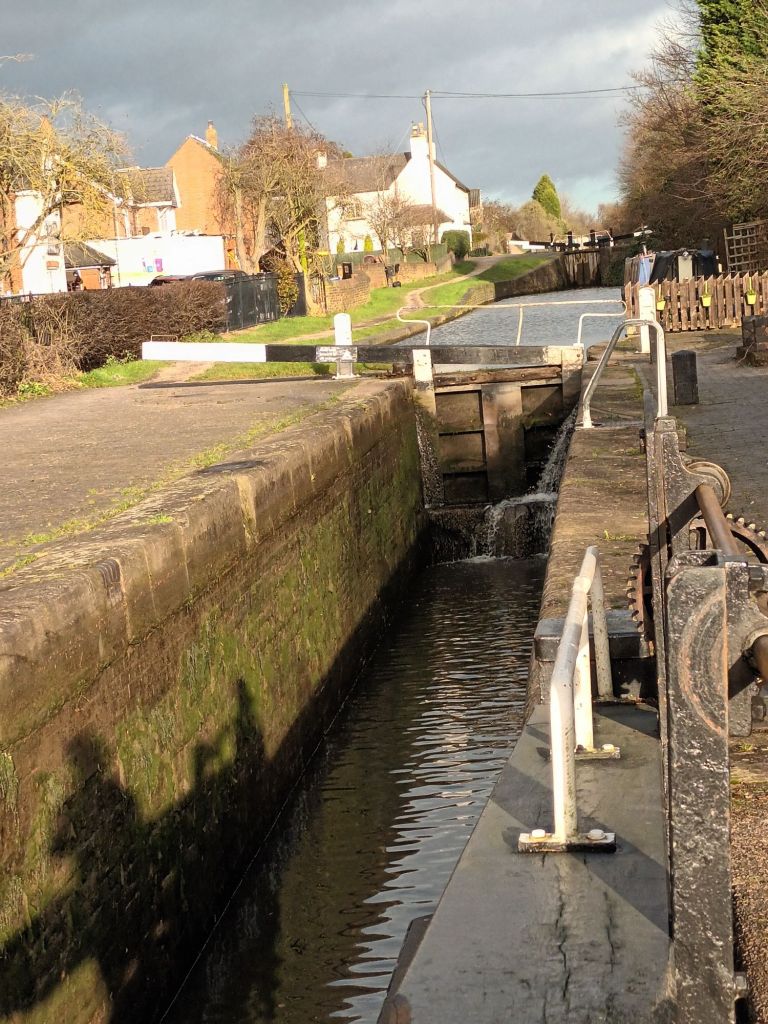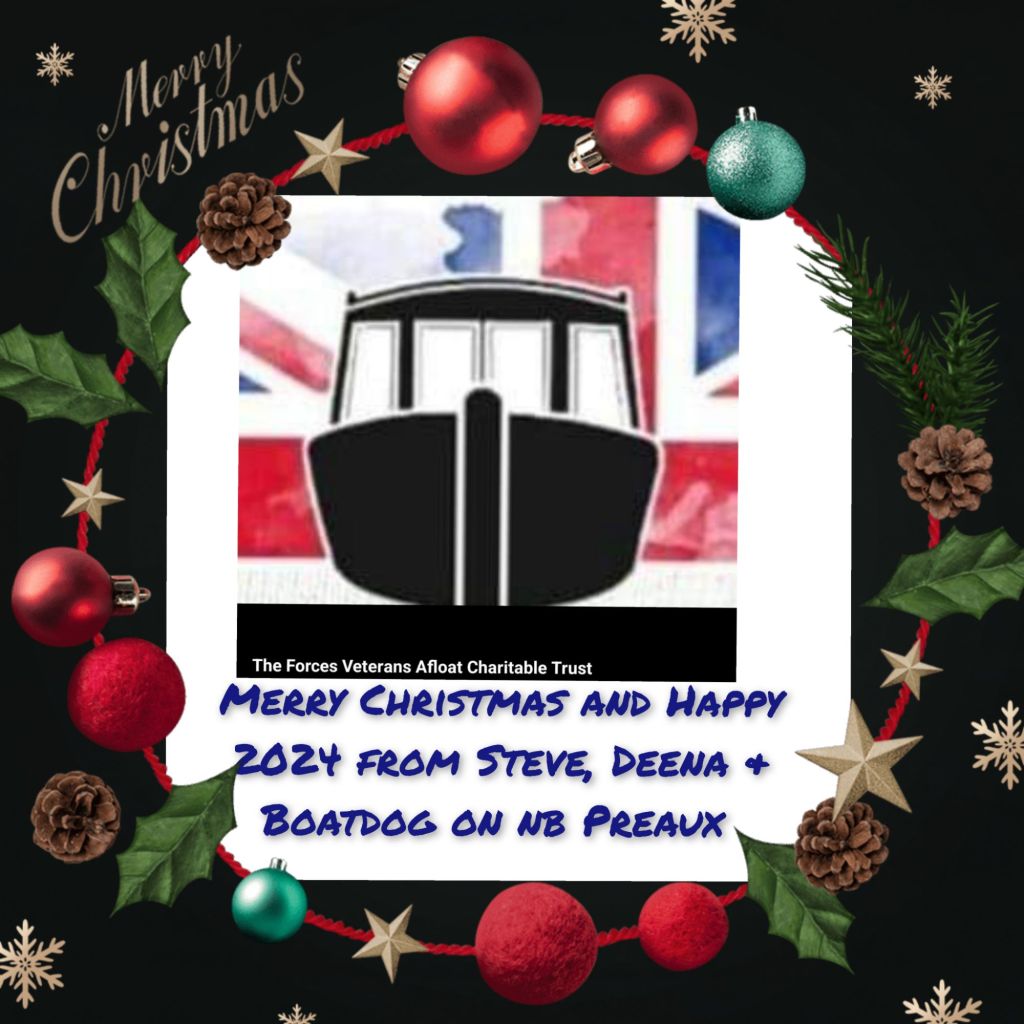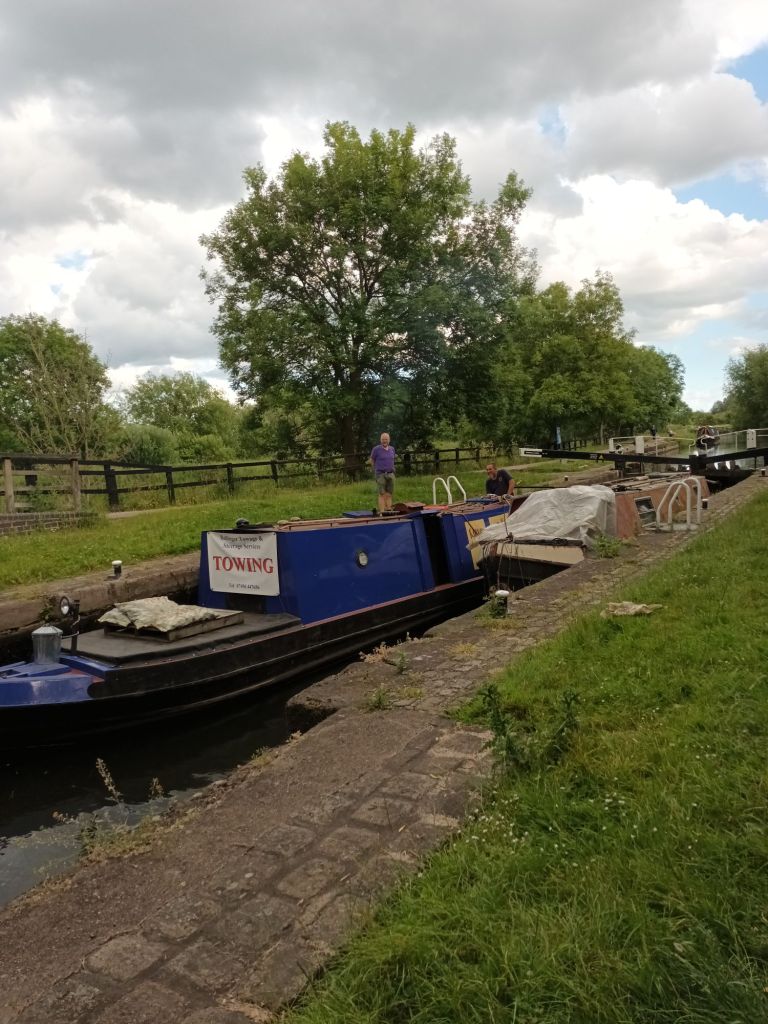Our window on the world, or indeed windows on the world have changed dramatically this week. We see the wealth of birds and animals, people and the British weather around our floating home and office very differently today than we did this time last week.
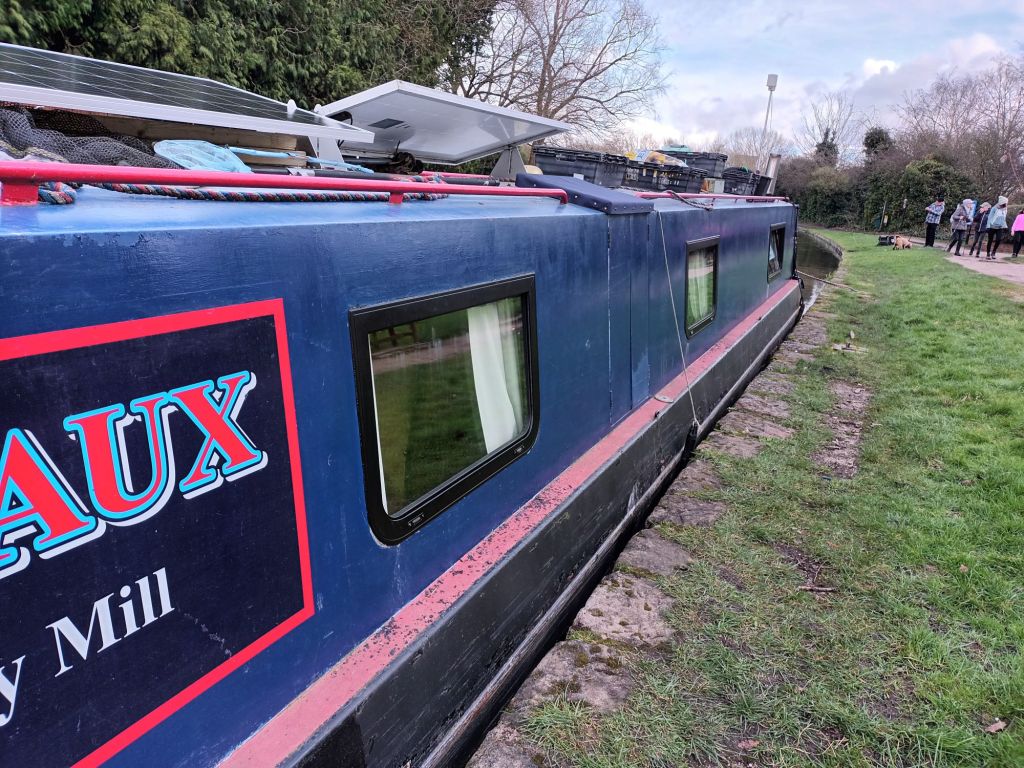
After years of planning, research, saving, and preparation – we have new windows, and not just any windows. We have replaced our single glazed ones which had a metal hopper strip with large panel double glazed windows. We are seeing things totally differently, and are ridiculously surprised by the difference it has made. There’s no line across our view anymore. The world we see seems more expansive. As I write, two blackbirds and a pigeon are flying from beech to oak to alder, each taking their perches in that order. My view of their daily performance is captured in a black powder coated sleek frame, no peeling paint or encroaching green gunge detracting from the scene.

The old windows were a little like anyone with old vehicles with sliding windows might recall. I once had a Mini with sliding windows that acquired moss regularly and even began nurturing a buddleia – our old boat windows hadn’t become that advanced, but were heading that way. They rattled atrociously when we ran the engine or even moved on board, so each hopper had individual pieces of wine cork cut to wedge them either open or shut as desired. The only advantage to them was that they didn’t leak – although as we excavated and removed them we discovered at some point in their lives, some obviously had.
A major issue for our life afloat during the increasingly hot summer months when temperatures have risen above 40 degrees on our metal home, has been the complete inability with the old windows to open much of them to develop a through draft. We painted the roof a lighter to reflect the heat, retro-insulated as much as we could reach of the steel hull, but the windows and lack of breeze became a major issue. With that in mind, we’ve gone for windows that can be tilted or removed entirely to maximise any breeze. The highest insulation spec should also help, but time will tell.
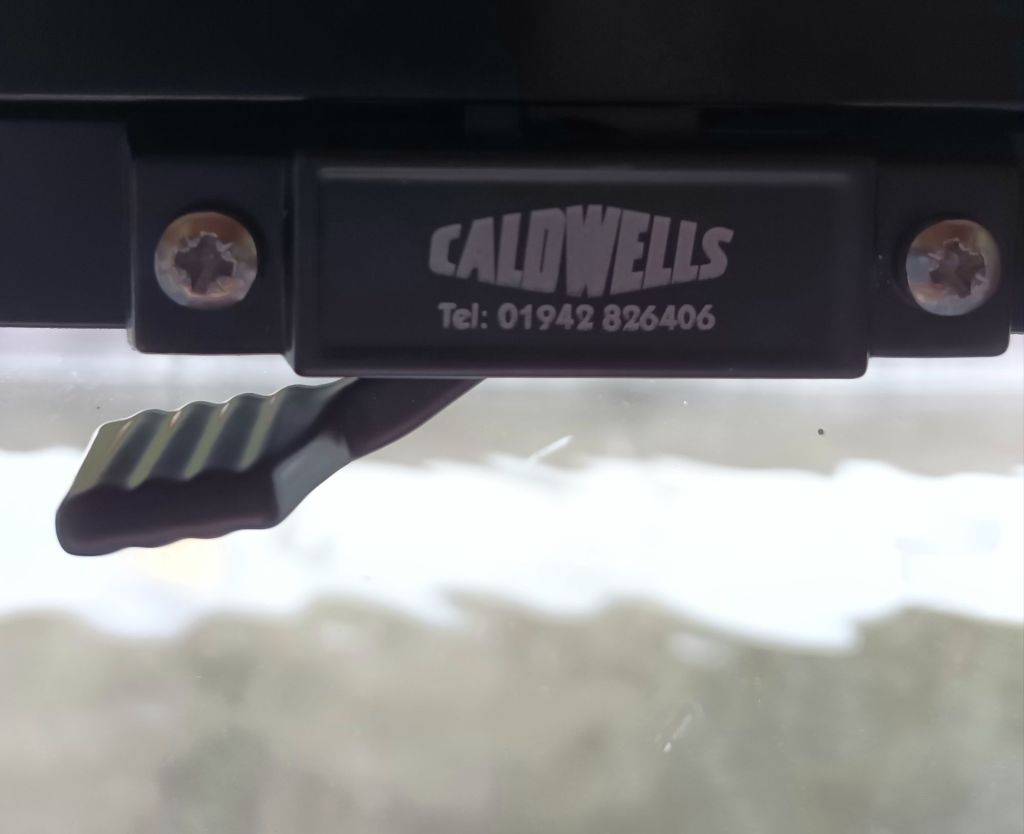
Cruising through Wigan last year, we visited Caldwell’s, the company we had selected. We wanted to see their windows in person, to feel them, see how they worked, talk through our requirements. It’s a genuine family firm, we spoke to two Mr Caldwells and a Miss Hannah Caldwell. They listened to what we wanted, made helpful suggestions, and were able to answer all our questions immediately – none of that ‘oh the person who’d know is busy’!
After Skipper Steve had measured our windows for the umpteenth time, we placed our order in the New Year, and on Wednesday he drove to Wigan to collect 7 beautifully packaged, new windows.
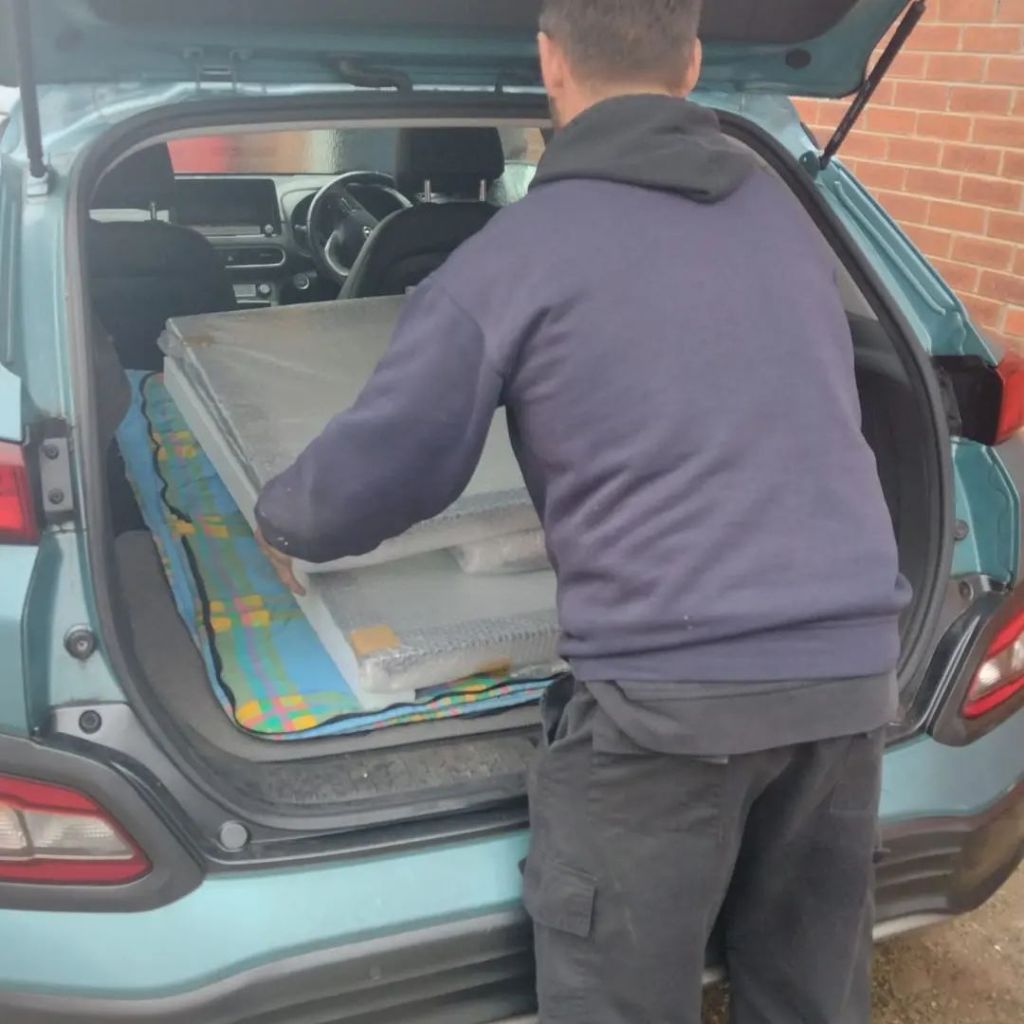
They sat overnight in a Derbyshire car park near the boat, and then on Thursday the highly recommended Callum came to install them. We couldn’t have chosen worse weather to be without windows! The rain started in the early hours of Thursday. It thundered unrelentingly on the roof, hammered against the old windows, and by the time Callum arrived (sensibly clad in waders) the towpath alongside the boat (and alongside the first lot of windows to be replaced) was under water.
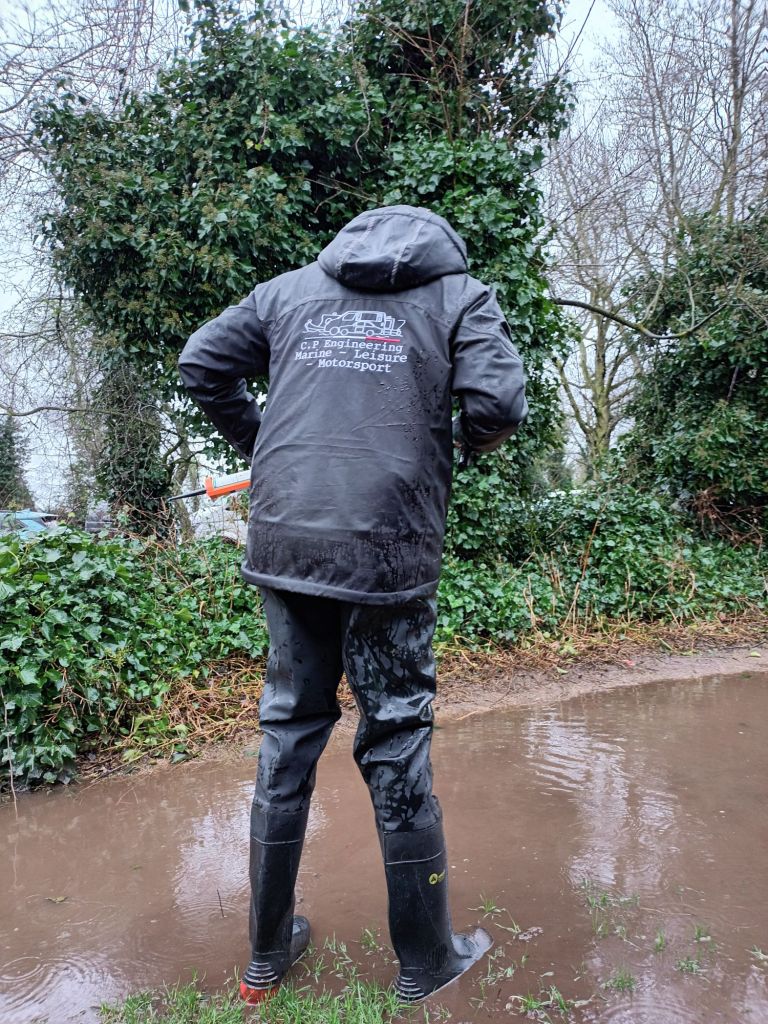
He’s a boater too, so undaunted. He began on the smallest of the 7 windows – the bathroom. Inside I was covering everything I could with thin plastic decorators’ sheets to catch the expected falling rust and stop the rain encroaching too much. Steve’s job was to try and prepare the multiple screws that had held in the old frames for removal. Thirty plus years had taken their toll on them though, and demanded brute force. Finally they succumbed to serious persuasion and we’re removed. After breaking the seal around the outside (which wasn’t hard), the window was out. AS the rain hammered in, we began to prepare the bare metal hole for its new window.
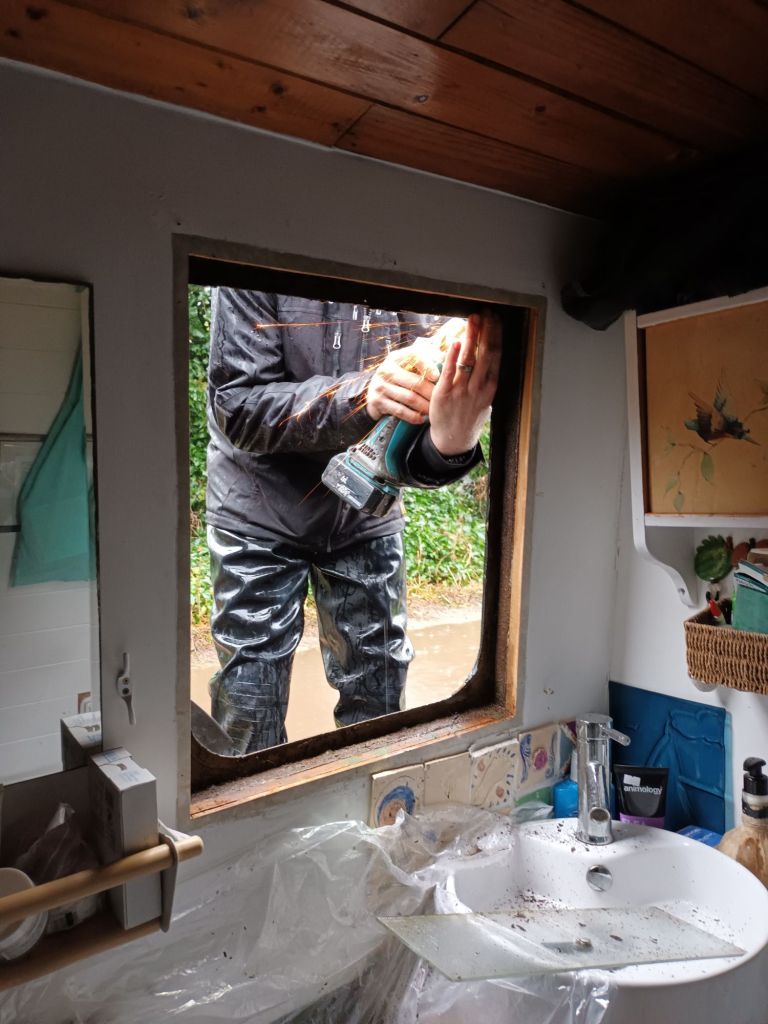
Scraping away old sealant and flaking paint, angle griding away rough edges, cleaning off rust, dust and a surprising number of mummified insects, levering out the old wooden frame from the inside that had sealed the gap between the window and the steel side of the boat. The rain pooled in the plastic sheeting, finally forcing it to fall to the bathroom floor where a handy bathmat soaked up the worst. Callum crouched in the protection of the hatch to prepare the new window with insulating foam edging and a bead of black sealant before whisking it through the rain to its new home. Ankle deep in water, he placed it into the prepared frame and it fitted! Don’t ask my why I had any frisson of joy after all that measuring, but relief was certainly evident on the Skipper’s face! Steve then had the job of securing the frame with ingenious clips that are screwed into place – fiddly in some places, straightforward in others, and head torches were as always invaluable for seeing what you’re doing in cramped spaces.

One down, six to go. Sausage and bacon sarnies and tea on tap despite everything piled high in the kitchen! We worked on, bedroom next, then the kitchen and finally the biggest window on this side, the saloon. All in, and then it was time to turn the boat (we were moored as close to the winding hole as possible to save disruption). Another boater walking his dog came for a chat and told us he was moving on, so we moved to his space alongside stone edging once we turned which reduced the risk of trench foot.
The rain stopped, and the sun tried to come out, as we turned, ready for the next side. Only three windows here – the side hatch adds more light and ventilation. It will be a project for another day.
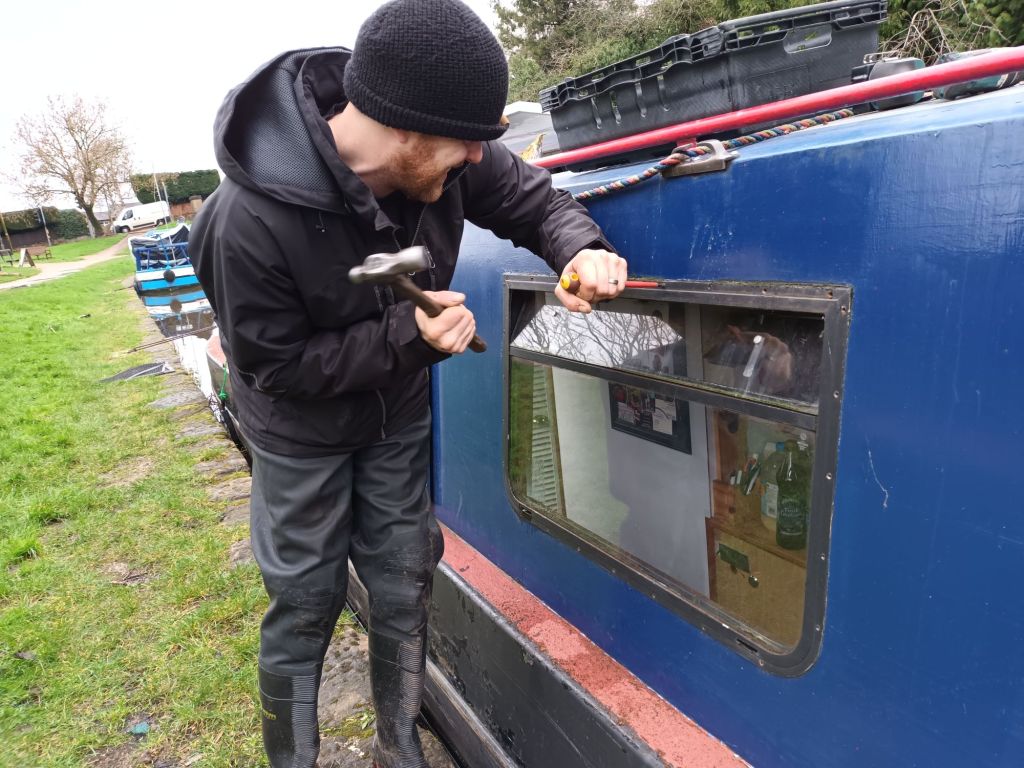
For now though, we worked on, old out, preparation of the hole, new in. Just as we started on the last window, the rain started again, and the last window proved the most difficult to get out, but a hammer worked wonders once more. We had the routine down to a fine art, and very little rain came in before a lovely shiny new window was in place, keeping out the elements. Within 5 hours, 7 old single glazed windows and their internal wooden frames were out, and new double glazed windows installed.
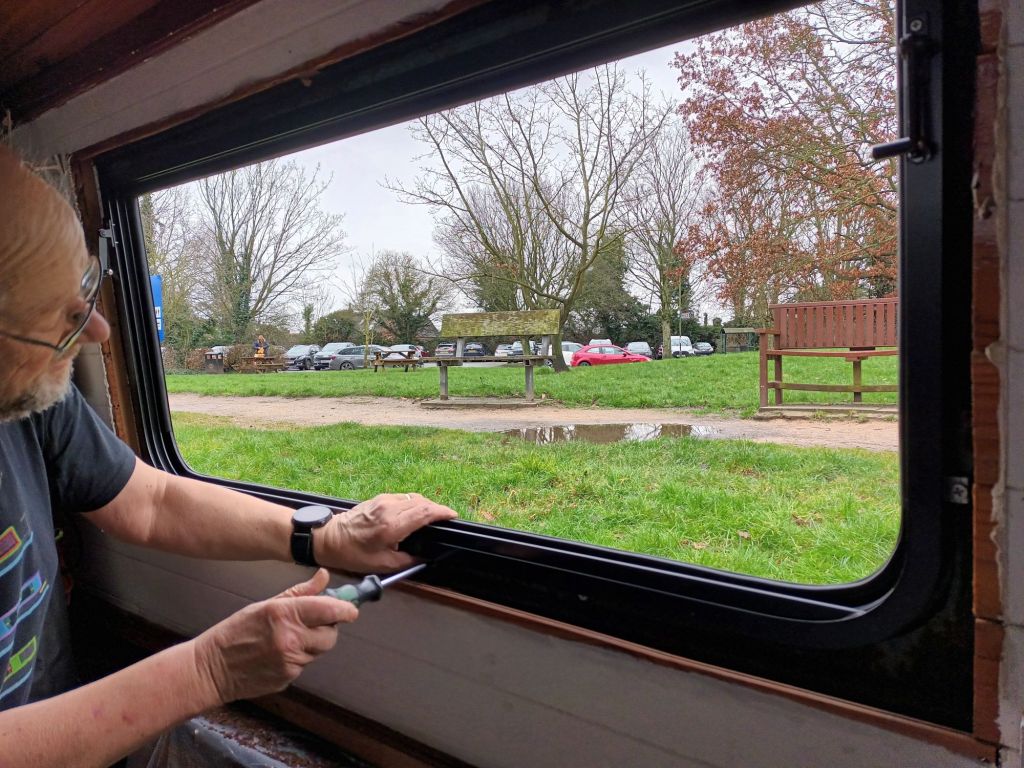
Last night was so bizzarely quiet on board the boat (and we’re moored outside a pub by a road) – we could hear a pin drop. Somehow, I hadn’t expected such a complete change. I had to open the window by the bed to hear the birdsong this morning! There are noticeably fewer drafts, and we can begin the process of insulating the internal areas around the new windows, making new wooden frames for the inside as streamlined as our new views on our world. I think new window coverings are also called for – maybe blinds this time with magnets to hold them in place on our sloping walls, so we can pull the blind right up above the window and maximise not only our view of the outside, but our view of these amazing windows.
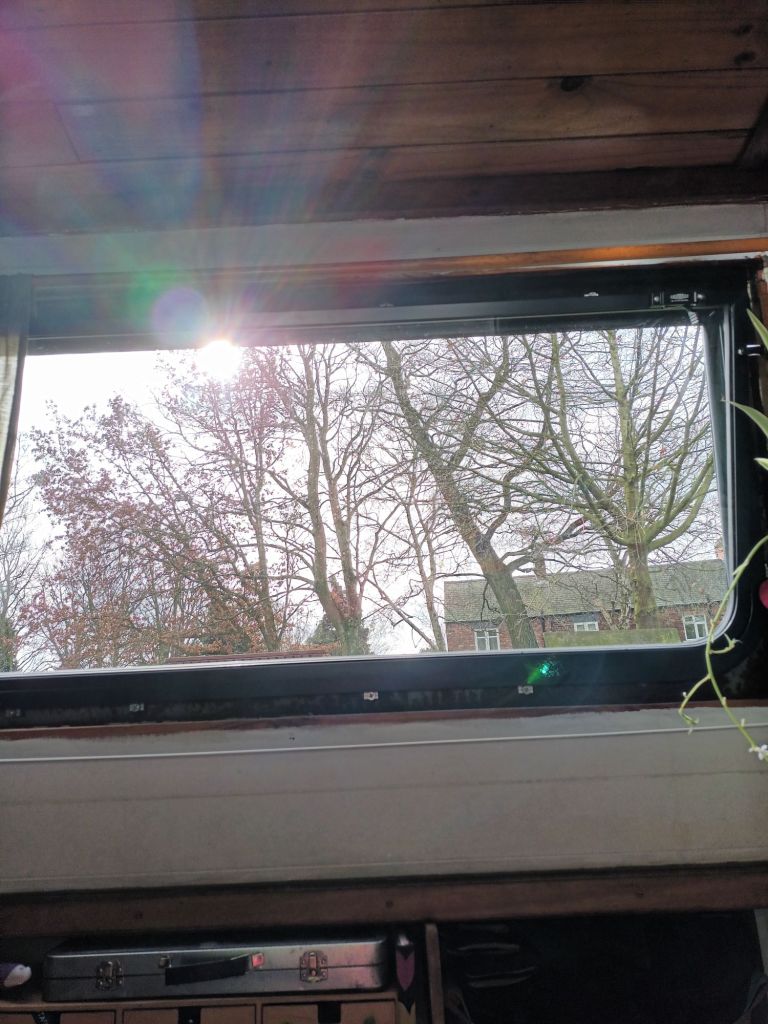
Not since the advent of our fridge and then our washing machine has anything changed our life afloat so dramatically. As we live with these windows through changing temperatures, we should see even more advantages, to fuel usage in the winter and staying cool in the summer.
Unfortunately the person who said they wanted the old windows hasn’t materialised so if anyone wants them, do get in touch, seems a waste to throw them away.
For now though, I know the new ones mean a bit more work. George Bernard Shaw said “…keep yourself clean and bright, you are the window through which you must see the world.” I need to keep our windows clean and bright – and I always seem to struggle with removing smears during cleaning. Anyone prepared to share their tips to solve this, please?
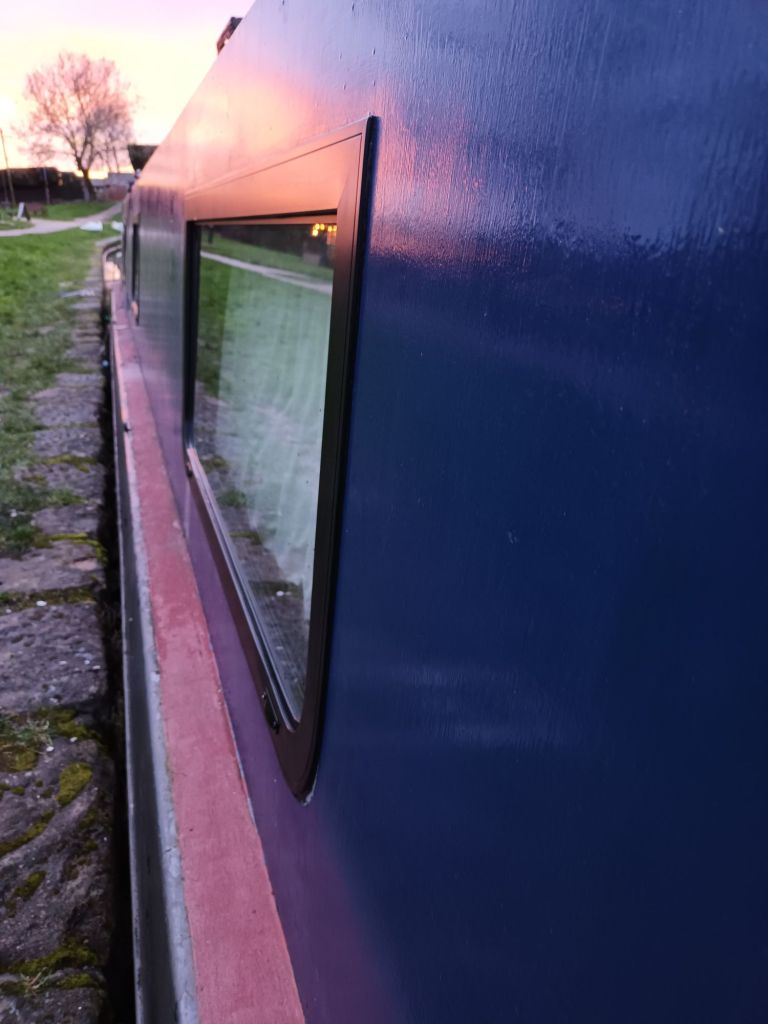
New window spec for those interested:
Double glazed, black powder coated frames, thermal break, full hopper so the whole window tilts, clip in installation, mitred tops, 4 inch radius curved bottoms (old ones were 3 inch radius) aesthetically more pleasing, 6 clear glass and 1 frosted glass. All supplied by Caldwells Windows Limited
